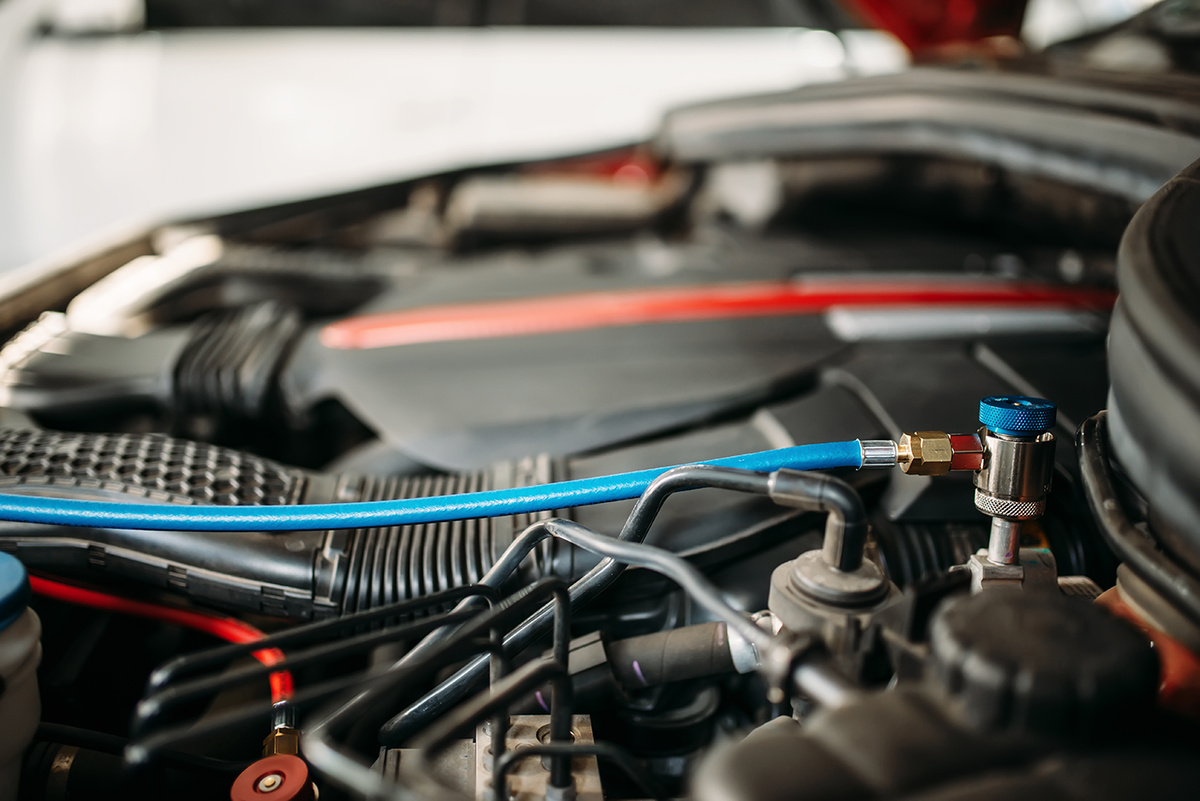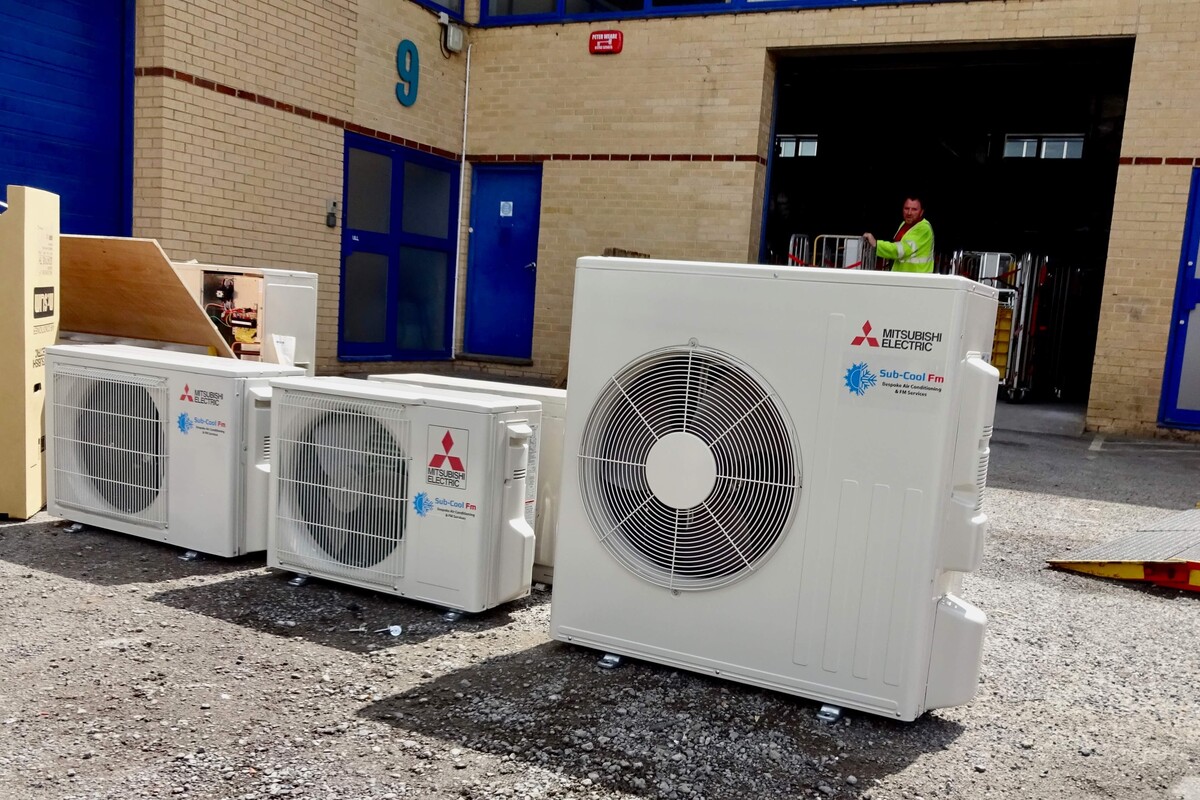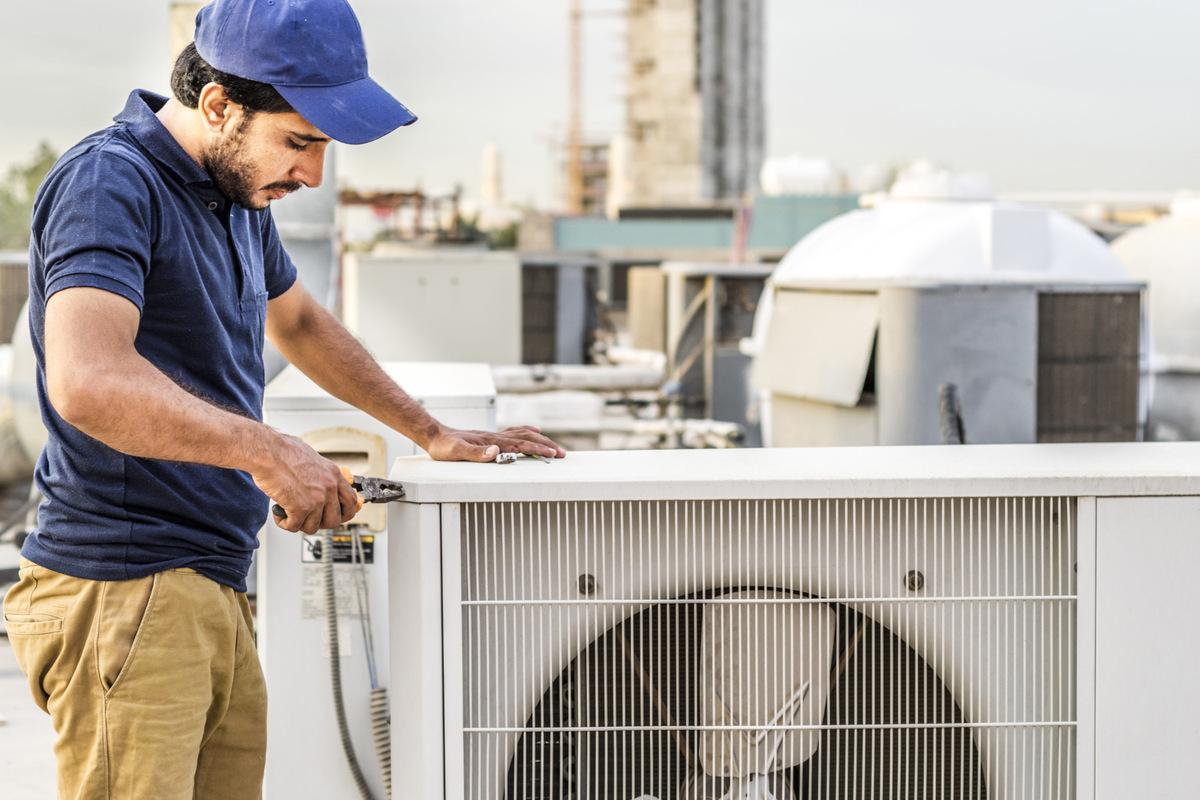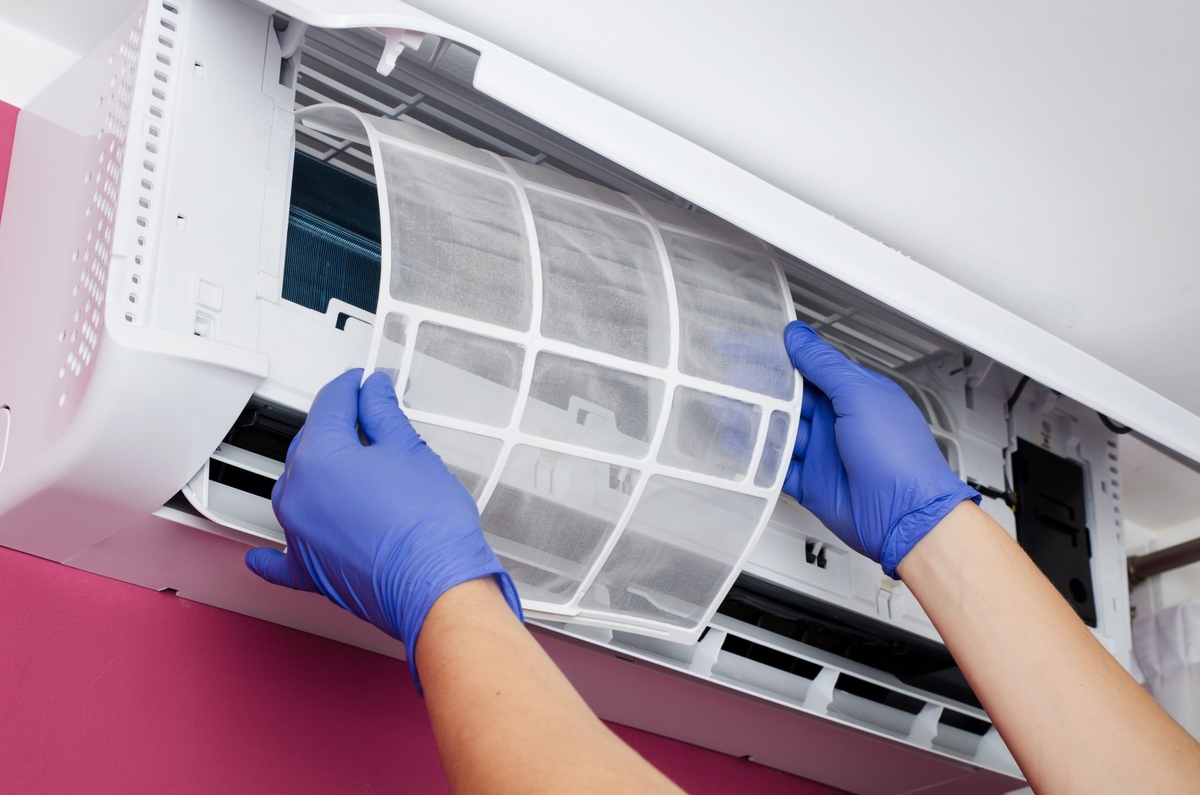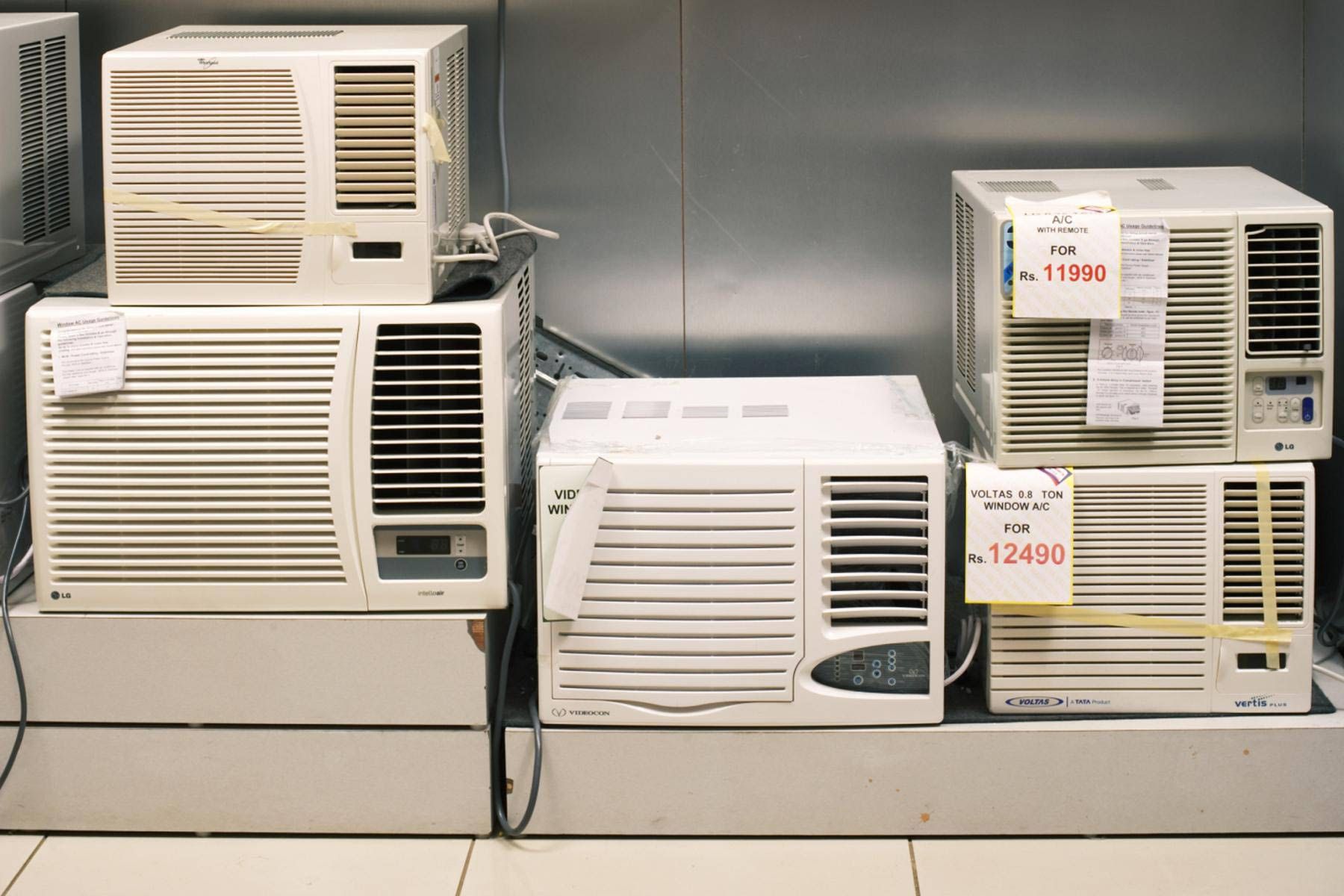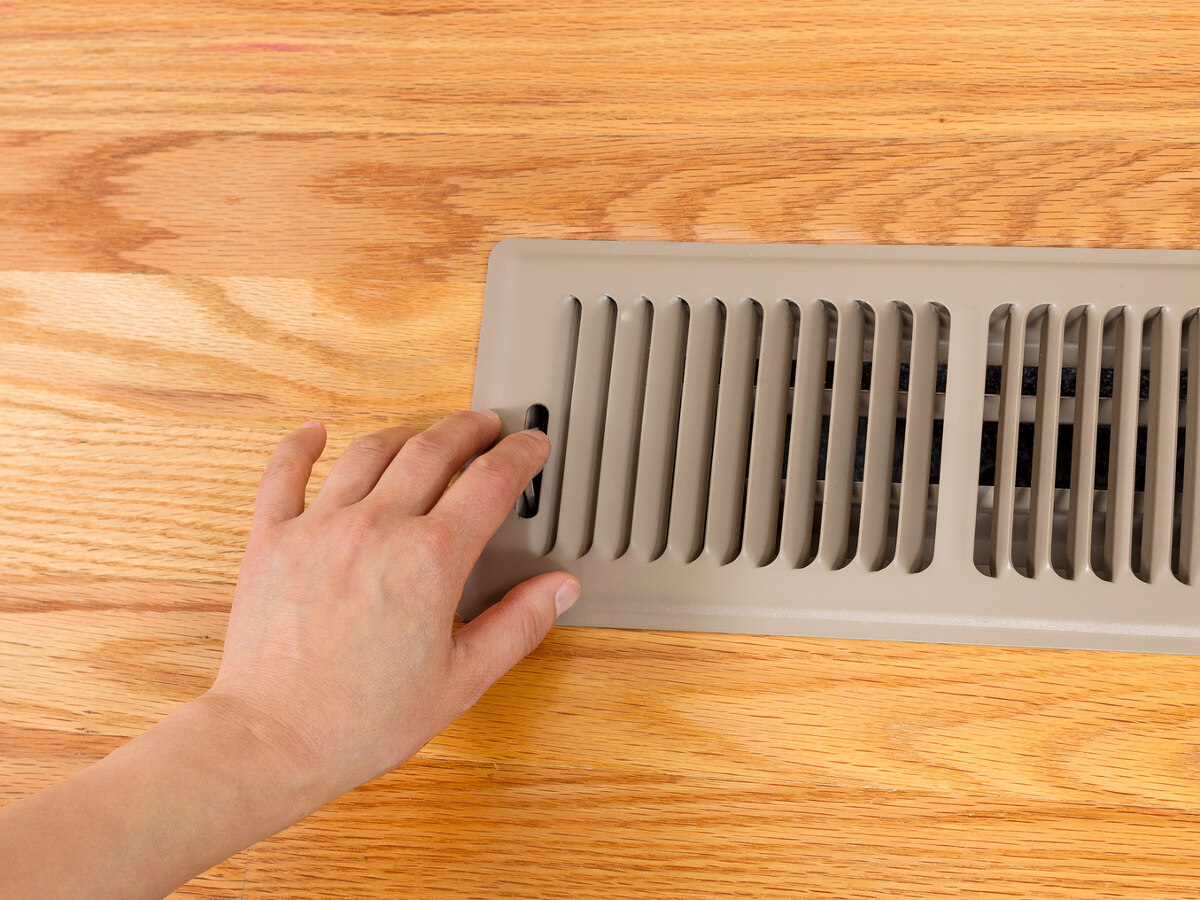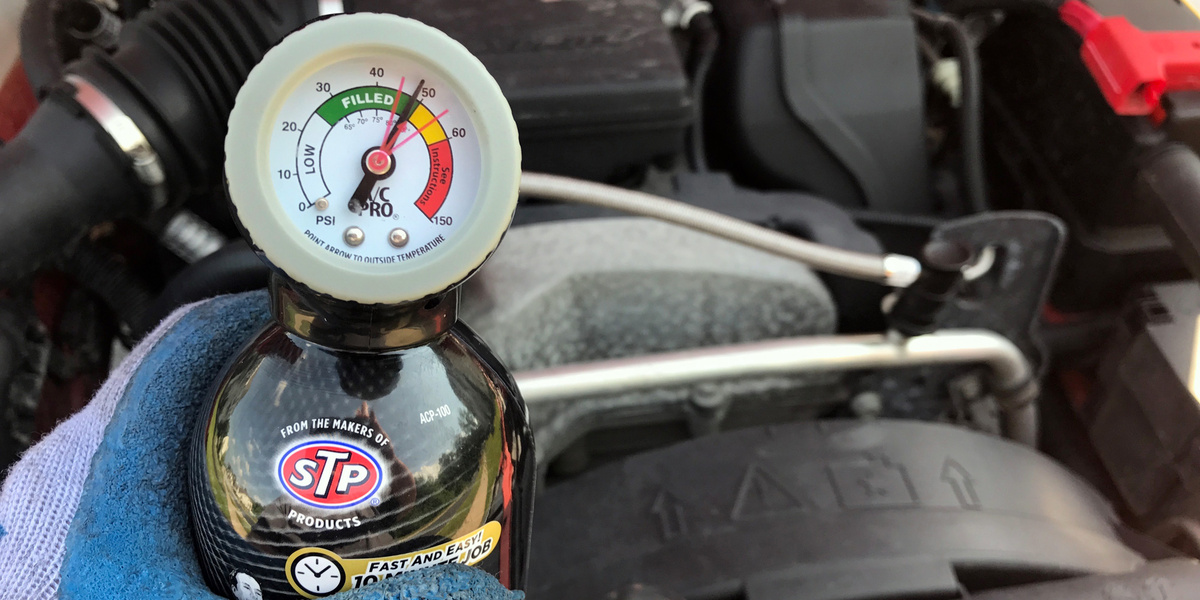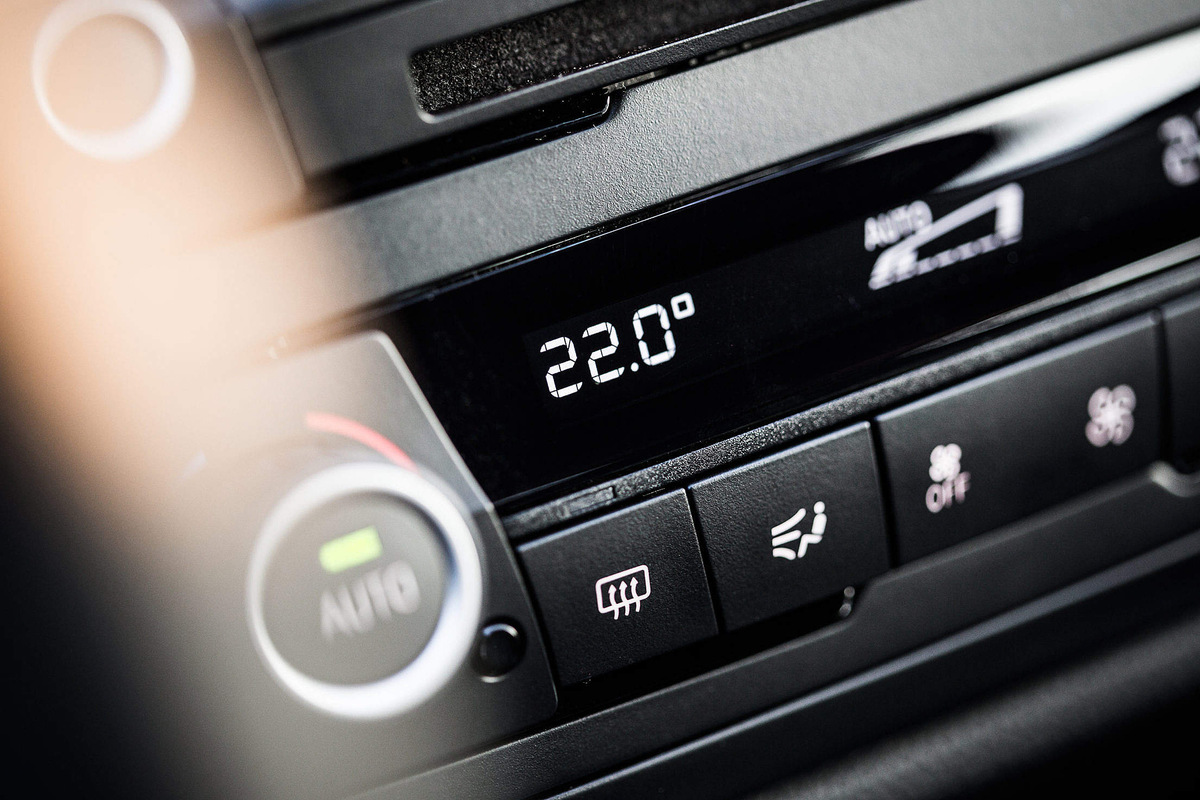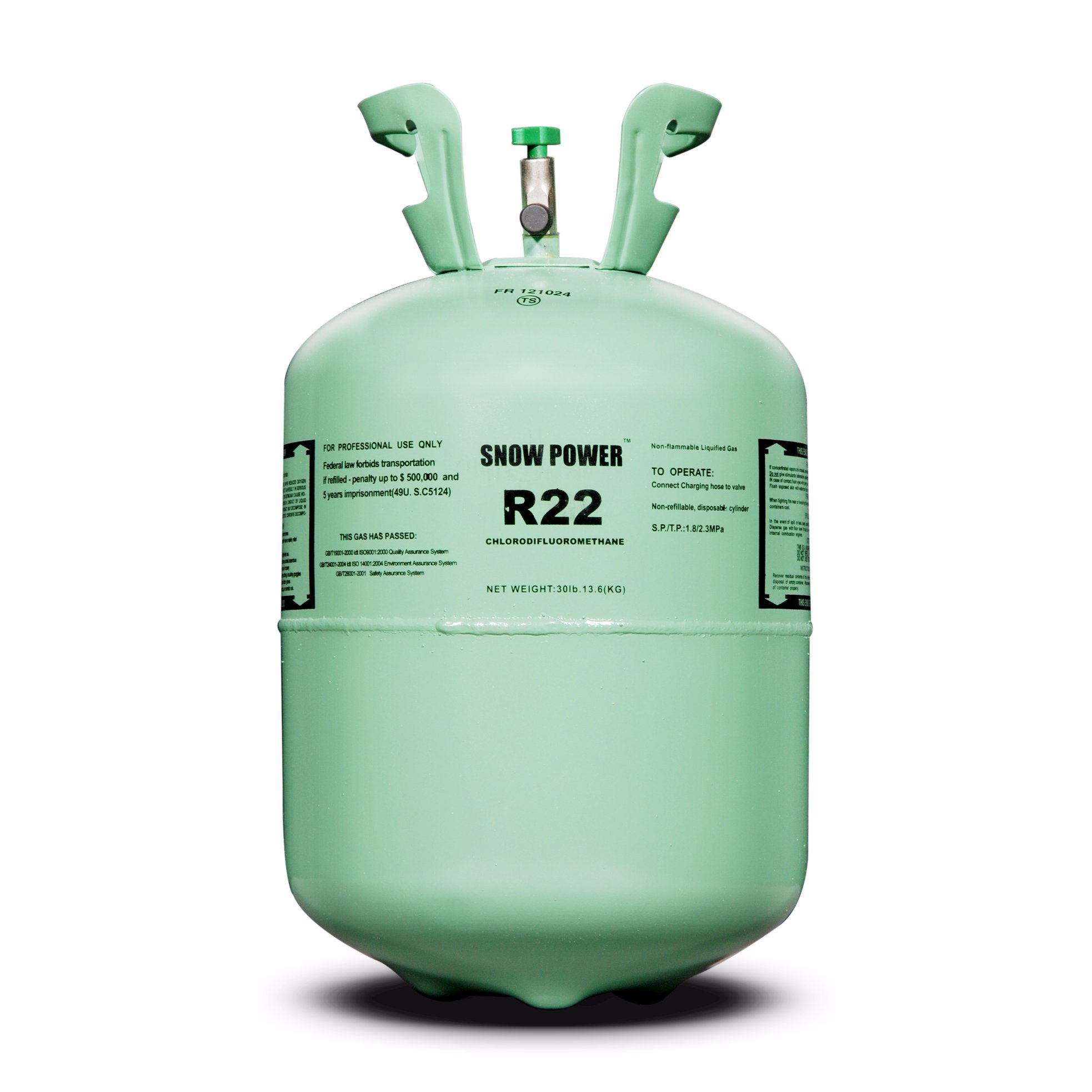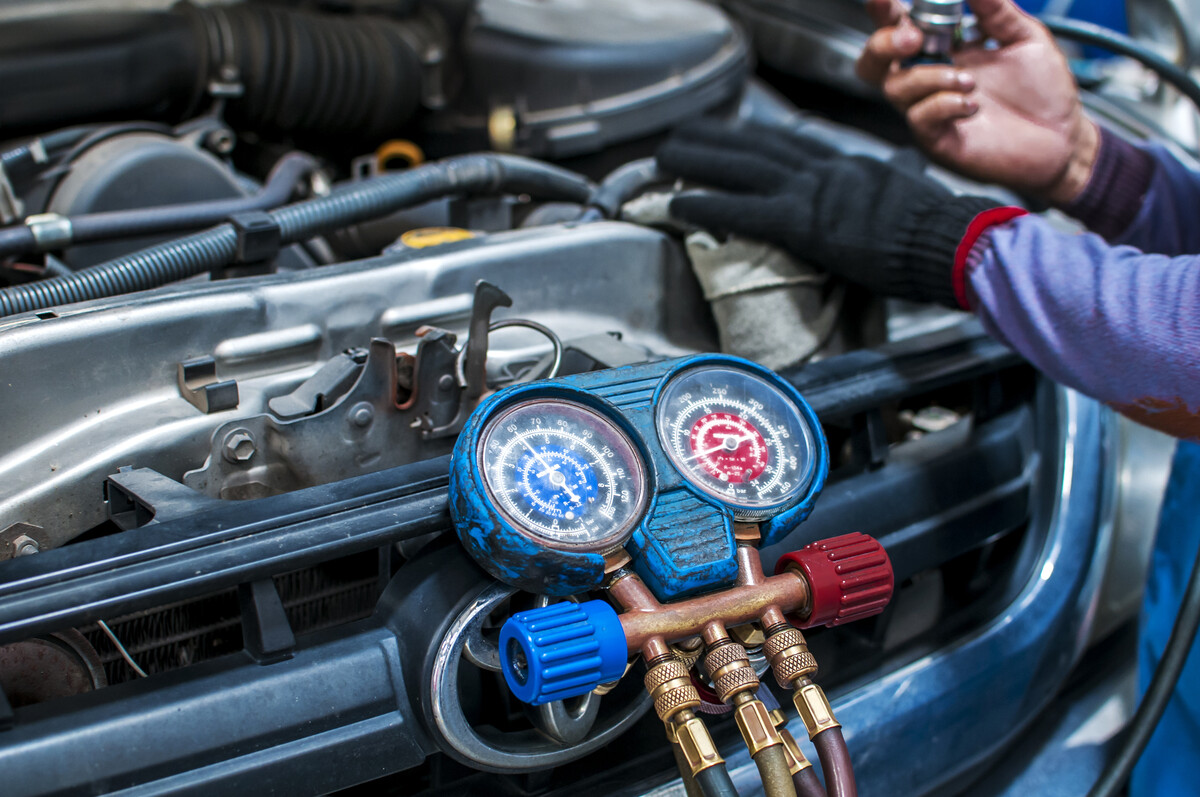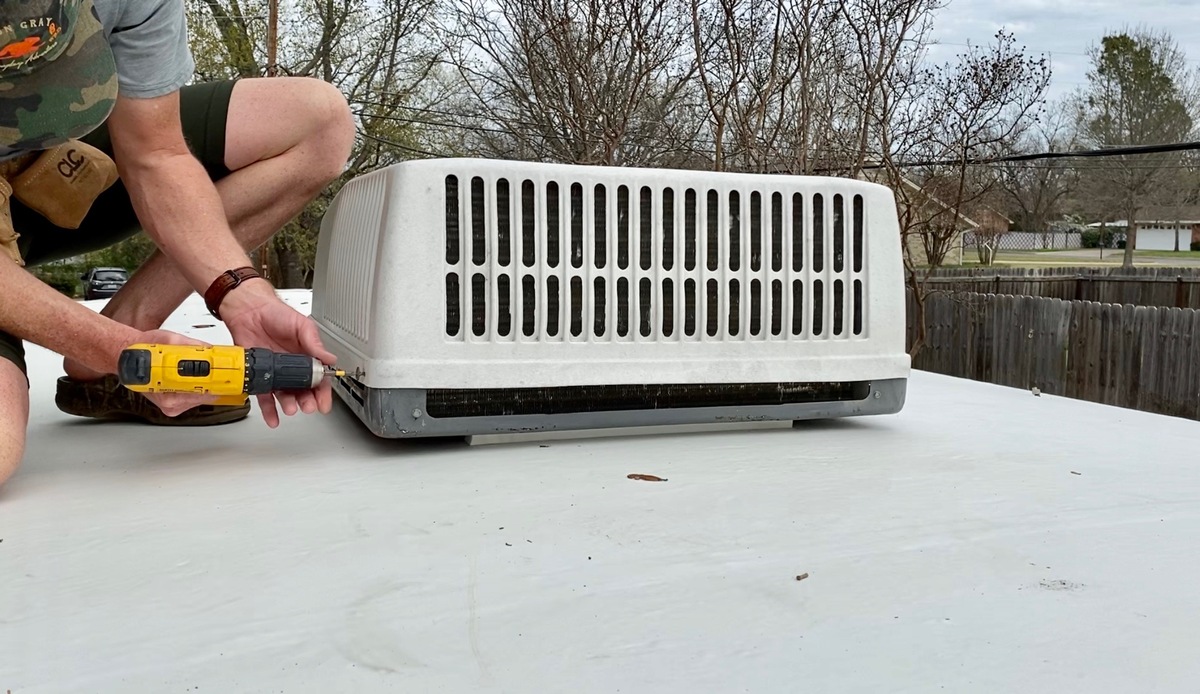Home>Home Maintenance>How To Get Air Conditioning In The Garage
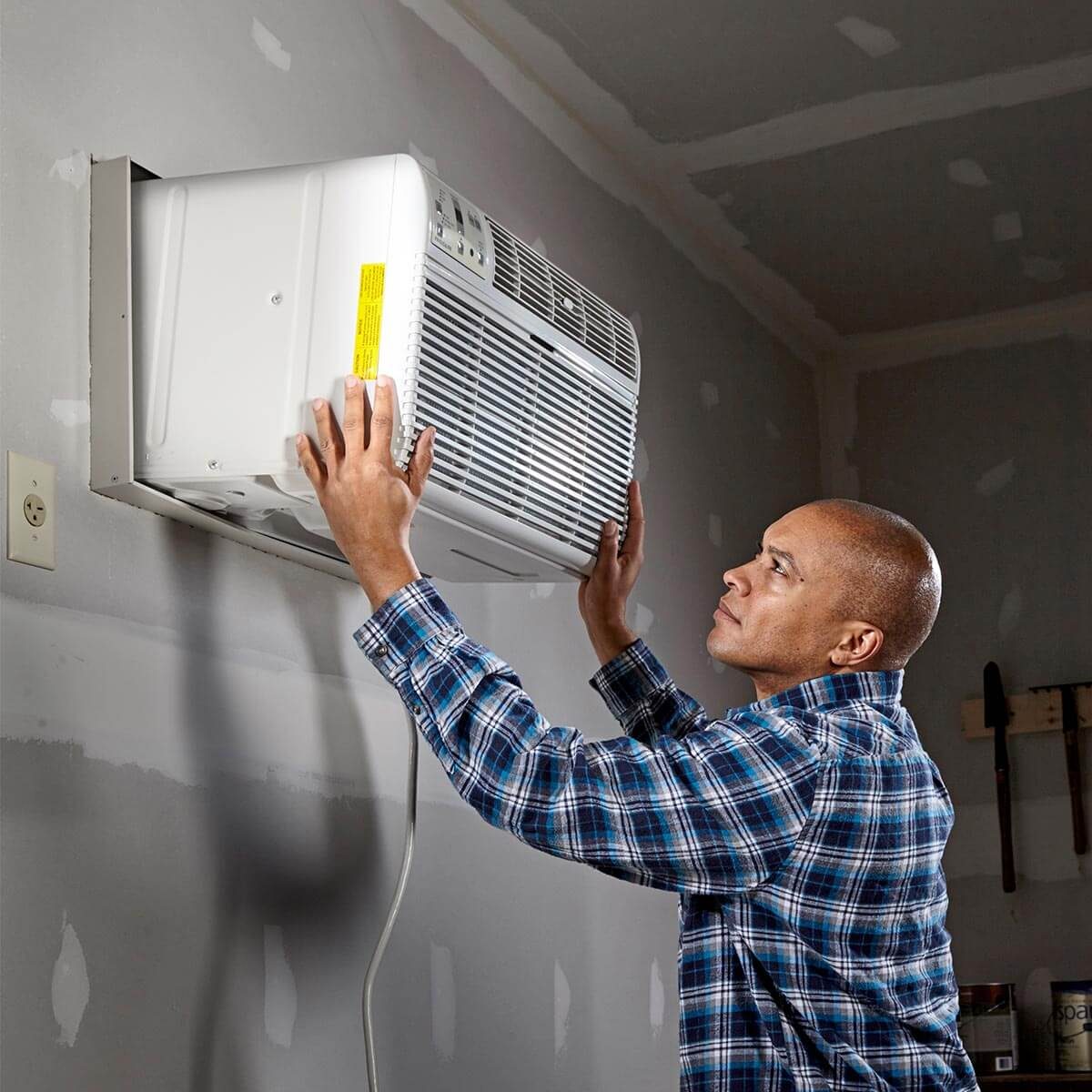

Home Maintenance
How To Get Air Conditioning In The Garage
Modified: October 20, 2024
Learn how to properly install and maintain air conditioning in your garage for optimal comfort and convenience. Discover helpful home maintenance tips and tricks to keep your garage cool all year round.
(Many of the links in this article redirect to a specific reviewed product. Your purchase of these products through affiliate links helps to generate commission for Storables.com, at no extra cost. Learn more)
Introduction
Welcome to the ultimate guide on how to get air conditioning in the garage. As the summer heat begins to escalate, finding a way to keep your garage cool and comfortable becomes essential. Whether you use your garage as a workshop, a home gym, or simply for storage, having air conditioning can make a significant difference in both the functionality and enjoyment of this space.
The garage is often overlooked when it comes to air conditioning, as the main focus is typically on cooling the main living areas of a home. However, with the right approach, you can transform your garage into a cool retreat, regardless of the sweltering temperatures outside.
In this comprehensive guide, we will explore the benefits of having air conditioning in the garage, factors to consider before installing, different air conditioning options available, steps to install air conditioning, maintenance tips, and cost considerations. By the end of this article, you will have all the information you need to successfully bring cool air into your garage.
So, let’s dive in and discover how you can beat the heat and create a cool oasis in your garage!
Key Takeaways:
- Beat the heat and transform your garage into a cool oasis with air conditioning. Enjoy increased productivity, protected belongings, improved air quality, and versatile usage.
- Consider factors like garage size, insulation, power supply, noise, and budget before choosing the right air conditioning option. Maintenance and cost considerations are crucial for long-term satisfaction.
Read more: How To Get Air Conditioning Certification
Benefits of Having Air Conditioning in the Garage
Having air conditioning in your garage offers a multitude of benefits that can greatly improve your overall experience in this space. Let’s take a closer look at some of the key advantages:
- Temperature Control: The primary benefit of having air conditioning in the garage is the ability to control the temperature. This is particularly important if you use your garage for activities that require a specific temperature range, such as working with sensitive materials or equipment, exercising, or even just spending leisure time. Air conditioning ensures that you can maintain a comfortable and consistent temperature, regardless of the weather outside.
- Increased Productivity: With a cool and comfortable environment, you can maximize your productivity in the garage. Whether you’re working on DIY projects, repairing vehicles, or engaging in hobbies, the ability to work in a space that is adequately cooled can prevent fatigue and enhance focus and efficiency. You’ll be able to work for longer periods without feeling overheated or drained, accomplishing tasks with ease.
- Protects Belongings: Air conditioning not only benefits you but also helps to protect your valuable belongings stored in the garage. Extreme temperatures, especially during hot summer months, can damage items such as electronics, tools, paint cans, and other materials. By maintaining a stable and cool temperature, you can prolong the lifespan of these items and prevent any potential damage or deterioration.
- Improves Air Quality: Air conditioning units not only cool the air but also filter out dust, pollen, and other airborne particles. This can greatly improve the air quality in your garage, creating a healthier environment for you to breathe. Especially if you spend extended periods working in the garage, having clean and fresh air can help alleviate allergies and respiratory issues.
- Versatility: Adding air conditioning to the garage opens up a world of possibilities. You can transform your garage into a multifunctional space that can be used for various activities such as a home gym, an art studio, a game room, or even a home office. With air conditioning, you have the flexibility to utilize your garage in ways that were previously limited by uncomfortable temperatures.
With all of these benefits in mind, it’s clear that having air conditioning in the garage goes beyond just providing comfort. It enhances functionality, protects belongings, and allows for an expanded range of uses. Now that we understand the advantages, let’s explore the key factors to consider before installing air conditioning in your garage.
Factors to Consider Before Installing Air Conditioning in the Garage
Before diving into the installation process, there are several important factors to consider to ensure a successful air conditioning setup in your garage. Taking these factors into account will help you make informed decisions and choose the right air conditioning system for your specific needs. Let’s explore the key considerations:
- Size of the Garage: The size of your garage will directly impact the type and capacity of the air conditioning system you require. Larger garages will typically require more powerful cooling units to effectively regulate the temperature. Measure the dimensions of your garage to determine the square footage and consult with an HVAC professional to determine the appropriate cooling capacity for your space.
- Insulation and Ventilation: Proper insulation and ventilation play crucial roles in the effectiveness and efficiency of your air conditioning system. Insufficient insulation or poor ventilation can lead to temperature fluctuations and increased energy consumption. Evaluate the insulation levels in your garage and ensure there are adequate vents or windows to allow for proper airflow. If needed, consider improving insulation and adding ventilation before installing an air conditioning unit.
- Power Supply: Before choosing an air conditioning system, it’s important to evaluate the power supply in your garage. Some cooling units may have higher power requirements that could necessitate electrical upgrades. Check if your existing electrical panel can handle the additional load and consult with an electrician to ensure proper wiring and safety measures are in place.
- Noise Considerations: Depending on the location and proximity of your garage to living spaces or neighbors, noise levels may be a concern. Air conditioning units can emit varying levels of noise during operation. If noise is a significant factor, consider quieter models or explore insulation options to minimize sound transmission.
- Budget: Determine your budget for the air conditioning installation project. Consider not only the cost of the unit itself but also the expenses associated with installation, any necessary modifications, and ongoing maintenance. Compare prices of different air conditioning options and consider the long-term energy efficiency to find the most cost-effective solution for your budget.
- Professional Installation: While some DIY enthusiasts may attempt to install their own air conditioning units, it is often recommended to seek professional installation. HVAC professionals have the knowledge and expertise to ensure proper installation, optimal performance, and compliance with local building codes. Additionally, professional installation often comes with warranties that provide peace of mind and protection against potential issues.
By considering these factors and thoroughly assessing your garage’s specifications and requirements, you’ll be better equipped to make informed decisions regarding air conditioning installation. Once you have a clear understanding of these considerations, you can move on to exploring the different air conditioning options available for your garage.
Different Air Conditioning Options for the Garage
When it comes to choosing the right air conditioning system for your garage, there are several options to consider. The suitability of each option depends on factors such as the size of your garage, insulation levels, ventilation, and your budget. Let’s explore some of the most common air conditioning options for garages:
- Window Air Conditioner: A window air conditioner is a popular option for cooling smaller garages. These units are affordable, easy to install, and provide efficient cooling for compact spaces. They are designed to fit in a standard-sized window frame and require minimal modifications to the garage. Window air conditioners are available in different cooling capacities to accommodate various garage sizes.
- Ductless Mini-Split System: A ductless mini-split system consists of an outdoor unit and one or more indoor units. This system doesn’t require ductwork and offers flexibility in terms of installation location. It provides both cooling and heating capabilities, making it suitable for year-round use in the garage. Ductless mini-split systems are efficient, quiet, and allow for independent temperature control in different zones of the garage.
- Portable Air Conditioner: If you’re looking for a flexible option that can cool specific areas of the garage, a portable air conditioner may be the ideal choice. These units can be easily moved around and require minimal installation. Portable air conditioners come with exhaust hoses that vent hot air out of the garage through a window or vent. They are suitable for smaller spaces or targeted cooling of specific areas.
- Through-the-Wall Air Conditioner: Similar to window air conditioners, through-the-wall units are installed directly into a wall opening rather than a window. These units provide a more permanent cooling solution for the garage and require professional installation. Through-the-wall air conditioners come in various sizes and cooling capacities, making them suitable for different garage sizes.
- Traditional Central Air Conditioning: If your garage is connected to the central HVAC system of your home, you may consider extending the ductwork to provide cooling to the garage. This option offers consistent cooling, but the feasibility depends on the proximity of the garage to the central air conditioning unit and the capacity of the existing system.
Each of these air conditioning options has its own advantages and considerations. Consider factors such as the size of your garage, installation requirements, energy efficiency, and your specific cooling needs when choosing the right option for your garage. Consulting with an HVAC professional can help you make an informed decision based on your unique circumstances.
Now that you’re aware of the different air conditioning options, let’s proceed to the next section to learn about the steps involved in installing air conditioning in your garage.
Consider installing a ductless mini-split air conditioning system in your garage. It’s easy to install, energy efficient, and provides effective cooling without the need for extensive ductwork.
Steps to Install Air Conditioning in the Garage
Installing air conditioning in your garage requires careful planning and execution to ensure a successful and efficient cooling system. While the specific steps may vary depending on the type of air conditioning unit you choose, here is a general outline of the installation process:
- Determine the best location: Evaluate your garage layout and choose the optimal location for the air conditioning unit. Consider factors such as accessibility, proximity to electrical outlets, and airflow. This step is particularly important for ductless mini-split systems or through-the-wall air conditioners.
- Ensure proper insulation: Before installing the air conditioning unit, make sure the garage is adequately insulated. Proper insulation helps to maintain the desired temperature and improves energy efficiency. If needed, add insulation to the walls, ceiling, and garage door to create a thermal barrier.
- Prepare the electrical supply: If your chosen air conditioning unit requires electrical wiring, consult with an electrician to ensure a suitable power supply is available. The electrician will install the necessary wiring and ensure it complies with local building codes and safety regulations.
- Install mounting brackets: For ductless mini-split systems or through-the-wall air conditioners, install the mounting brackets according to the manufacturer’s instructions. These brackets provide support for the unit and ensure it is securely mounted on the wall or window.
- Connect the refrigerant lines (if applicable): For ductless mini-split systems, connect the refrigerant lines from the outdoor unit to the indoor unit. Follow the manufacturer’s instructions carefully to ensure a proper connection and prevent any refrigerant leaks.
- Secure the air conditioning unit: Properly secure the outdoor unit (if applicable) to ensure stability and prevent vibrations or noise during operation. Make sure it is placed on a level surface and clear of any obstructions that may impede air circulation.
- Complete the ductwork (if applicable): If you opt for a central air conditioning system or a unit connected to the existing HVAC system, ensure that the ductwork is properly extended to reach the garage. This step may require professional assistance to ensure proper airflow and distribution throughout the garage.
- Test the system: Once the installation is complete, test the air conditioning system to ensure it is operating correctly. Check for any air leaks, abnormal noises, or other issues. Adjust the temperature settings and airflow direction as needed.
- Schedule regular maintenance: To ensure the longevity and optimal performance of your garage air conditioning system, schedule regular maintenance. This includes cleaning or replacing air filters, checking refrigerant levels, and inspecting the system for any signs of wear or damage. Regular maintenance will help maximize cooling efficiency and prevent potential problems.
It’s important to note that the installation process may require professional expertise, especially when dealing with complex systems or electrical wiring. Consult with HVAC professionals or contractors to ensure a safe and efficient installation. Following these steps and seeking professional guidance will ensure that your garage air conditioning system operates effectively and keeps your space cool and comfortable.
Now that you’re familiar with the installation process, let’s move on to the next section for some essential maintenance tips for your garage air conditioning system.
Read more: How To Get Air Conditioning License
Maintenance Tips for Garage Air Conditioning System
Maintaining your garage air conditioning system is essential to ensure its longevity and optimal performance. Regular maintenance helps prevent breakdowns, improve energy efficiency, and maintain a clean and healthy environment in your garage. Here are some maintenance tips to keep your air conditioning system in top condition:
- Clean or replace air filters: Dust and debris can accumulate in air filters over time, leading to reduced airflow and decreased cooling efficiency. Clean or replace the air filters regularly, following the manufacturer’s guidelines. This simple task helps maintain proper airflow and indoor air quality.
- Check the outdoor unit: Regularly inspect the outdoor unit for any debris or obstructions that could hinder its performance. Ensure the unit is clear of leaves, grass, dirt, or other debris that may restrict airflow. Trim any vegetation that may be blocking the unit to maintain proper ventilation.
- Inspect the refrigerant lines: For ductless mini-split systems, periodically check the refrigerant lines for any signs of damage or leakage. If you notice any issues, contact a professional technician to repair or replace the damaged lines. Proper refrigerant levels are crucial for optimal cooling performance.
- Clear condensate drain lines: Over time, the condensate drain lines can become clogged with dirt or algae, leading to water leaks or drainage issues. Regularly inspect and clear the drain lines to ensure proper function. If you notice any water leaks, call a professional to address the problem and prevent further damage.
- Adjust airflow direction: Check the airflow direction of the air conditioning vents and adjust them as needed. Ensure that the airflow is directed towards the desired areas and not obstructed by any objects or furniture in the garage. This will ensure efficient cooling and airflow distribution.
- Schedule annual professional maintenance: It’s recommended to schedule annual maintenance visits with HVAC professionals to ensure a thorough inspection and tune-up of your garage air conditioning system. They will check for any potential issues, clean coils, lubricate moving parts, and perform any necessary repairs or adjustments to keep your system running smoothly.
- Monitor energy consumption: Keep an eye on your energy consumption to identify any unusual spikes or changes. Higher than usual energy bills may indicate inefficiencies in your air conditioning system. If you notice a significant increase in energy usage, contact a professional technician to diagnose and resolve the problem.
- Keep the garage clean: Regularly clean your garage to minimize dust and dirt that can accumulate on surfaces and affect the air quality. Vacuum or sweep the floors, wipe down any surfaces, and keep the area tidy. A clean garage will help maintain a cleaner air filter and reduce strain on the air conditioning system.
By following these maintenance tips, you can prolong the life of your garage air conditioning system, improve its performance, and ensure a comfortable environment in your garage. The effort put into regular maintenance will pay off in terms of energy efficiency, reduced repairs, and a more enjoyable and usable space.
Now that we’ve covered essential maintenance tips, let’s move on to the next section where we’ll discuss cost considerations for installing air conditioning in your garage.
Cost Considerations for Garage Air Conditioning Installation
When it comes to installing air conditioning in your garage, it’s important to consider the costs involved to ensure that it aligns with your budget. The total cost of the installation will depend on various factors, including the type of air conditioning system, the size of your garage, any necessary modifications, and professional labor charges. Let’s explore the main cost considerations:
- Unit Cost: The cost of the air conditioning unit itself will vary depending on the type and brand you choose. Window air conditioners generally have a lower cost compared to ductless mini-split systems or through-the-wall units. Portable air conditioners also have a wide price range depending on their cooling capacity and features. Determine your requirements and budget to select the most suitable unit.
- Installation Costs: Professional installation is recommended for many air conditioning systems, especially ductless mini-split systems and through-the-wall units. The installation costs will vary depending on the complexity of the project, any necessary electrical or structural modifications, and local labor rates. Obtain quotes from multiple HVAC professionals to compare costs and choose a reputable and skilled installer.
- Electrical Upgrades: Some garage air conditioning systems may require electrical upgrades or additional wiring to support their power requirements. The cost of these upgrades will depend on the existing electrical setup and the scale of the necessary modifications. Consult with an electrician to assess the electrical needs and determine any additional costs.
- Insulation and Ventilation: Proper insulation and ventilation improve the efficiency and effectiveness of your garage air conditioning system. If your garage lacks sufficient insulation or ventilation, you may need to invest in upgrades or improvements. The cost of insulation materials, such as foam board or insulation batts, and ventilation enhancements, like installing vents or fans, should be factored into the overall cost.
- Ongoing Maintenance: While not a significant upfront cost, it’s important to consider the expenses associated with regular maintenance of your garage air conditioning system. This includes tasks such as replacing air filters, cleaning coils, and scheduling annual professional tune-ups. These maintenance costs should be budgeted to ensure the long-term efficiency and functionality of your system.
Keep in mind that the costs outlined here are general considerations, and actual cost estimates will vary based on your specific circumstances and location. It’s recommended to obtain detailed quotes from professionals and thoroughly research the costs associated with your chosen air conditioning system.
During your research, consider energy efficiency ratings and the long-term cost benefits. While some air conditioning units may have a higher initial cost, they may offer greater energy efficiency, resulting in long-term savings on your utility bills.
Lastly, check for any available rebates, incentives, or financing options that can help offset the installation costs. Local utility companies or government programs sometimes offer incentives to promote energy-efficient systems, so be sure to explore these possibilities.
By considering all of these cost factors and carefully evaluating your options, you can make an informed decision about installing air conditioning in your garage that satisfies both your cooling needs and your budget constraints.
Now, let’s move on to our concluding remarks.
Conclusion
Adding air conditioning to your garage can transform it from a sweltering hot space to a cool and comfortable oasis. Not only does it provide relief from the heat, but it also offers a range of benefits such as temperature control, increased productivity, protection of belongings, improved air quality, and increased versatility for various activities.
Before embarking on the installation process, it’s important to consider factors such as the size of your garage, insulation and ventilation, power supply, noise considerations, and budget. Taking these into account will help you choose the right air conditioning option and ensure a successful installation.
There are several air conditioning options available for garages, including window units, ductless mini-split systems, portable units, through-the-wall units, and traditional central air conditioning. Each option has its own advantages and considerations, so it’s important to select the one that best meets your specific needs.
The installation process will vary depending on the chosen air conditioning system, but it generally involves determining the best location, ensuring proper insulation and ventilation, preparing the electrical supply, installing mounting brackets (if applicable), connecting refrigerant lines (if applicable), and testing the system for proper functioning.
Maintaining your garage air conditioning system is crucial to keep it running efficiently and to maximize its lifespan. Regularly cleaning or replacing air filters, checking the outdoor unit, inspecting refrigerant lines, clearing condensate drain lines, adjusting airflow direction, scheduling professional maintenance, and monitoring energy consumption are essential maintenance tasks.
Cost considerations include the upfront costs of the air conditioning unit and installation, potential electrical upgrades, insulation and ventilation improvements, ongoing maintenance expenses, and any available rebates or financing options. By carefully evaluating these costs and considering energy efficiency, you can choose a system that fits your budget and provides long-term savings.
In conclusion, installing air conditioning in your garage can greatly enhance the functionality, comfort, and enjoyment of the space. Whether you use your garage as a workshop, gym, or multi-purpose room, having a cool environment makes a significant difference. By following the steps outlined in this guide and considering key factors, you will be well-equipped to bring air conditioning into your garage and create a space that is cool, refreshing, and perfectly suited to your needs.
Frequently Asked Questions about How To Get Air Conditioning In The Garage
Was this page helpful?
At Storables.com, we guarantee accurate and reliable information. Our content, validated by Expert Board Contributors, is crafted following stringent Editorial Policies. We're committed to providing you with well-researched, expert-backed insights for all your informational needs.
